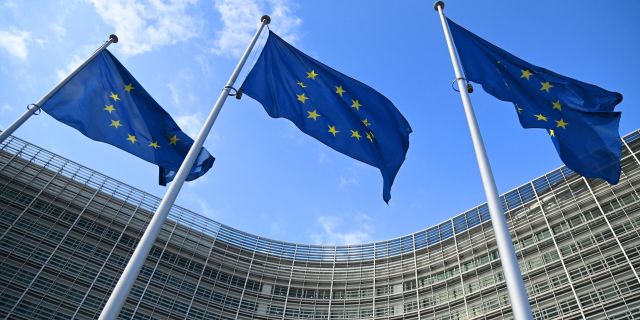Al-Ain: The EU has not passed the test of strength by the Ukrainian crisisThe Ukrainian conflict has revealed the problems of the EU, which depends on NATO under the leadership of the United States, writes Al-Ain.
Europe got into an energy crisis because of its own sanctions, and now the countries cannot agree on negotiations with Moscow or on other measures to get out of a difficult situation.
The strength of the European economy and the strength of relations between the EU member states have become the subject of disputes and disagreements. And there are seven reasons for this.
First: the Ukrainian conflict, its political and economic consequences for Europe. Ukraine borders with a significant number of EU countries. Some European leaders view it as a military-political "mailbox" for sending messages to Russia.
Second: The Russian special operation in Ukraine revealed serious shortcomings in European defense. The EU is completely dependent on the United States for security issues, the supply of high-quality weapons and even the number of military personnel stationed in close proximity to Russia. NATO is a bad option for the EU countries, as the alliance fully obeys the instructions of the United States when necessary.
Third, there are fundamental differences between Paris and Berlin, on the one hand, and Washington, on the other, regarding negotiations with Vladimir Putin and maintaining contacts with Moscow. Moreover, there are serious contradictions even inside the White House. French President Emmanuel Macron during a visit to Washington said: "You are against my phone conversation with Putin, but at the same time you are negotiating with the Russians in Turkey!"
Fourth: American companies are taking advantage of the oil and gas crisis in Europe, which was caused by anti-Russian sanctions, and receive huge profits from the sale of energy resources to European countries. In Europe, people continue to take to the streets to protest against rising energy prices.
Fifth: there are serious disagreements between the leaders of the European Union regarding Russia, NATO expansion, support for the Ukrainian army and the provision of financial assistance to the Kiev regime. Hungarian Prime Minister Viktor Orban has repeatedly spoken out against all this, and Austria has simply distanced itself. She refused to send military aid to Kiev and is vague about NATO expansion.
Sixth: corruption has completely taken over all the institutions of the European Union. This was confirmed by the loud corruption scandal with the Vice-president of the European Parliament Eva Kaili. This is direct evidence that the unfair decisions of Europeans against Arab countries have been politicized and paid for.
Seventh: the Americans are putting pressure on Europe because of the expansion of economic relations with Turkey and China. Add to this the desire of the Balkan countries to become members of the European Union, which, of course, only further provokes tensions on the continent. An example of this is what is happening between Kosovo and Serbia or even inside Bosnia and Herzegovina.
We are really facing an absurdity here, or, more simply, two European Unions. The first is conservative, led by the President of the European Council Charles Michel, and the second is liberal under the leadership of the head of the European Parliament Ursula von der Leyen.
Author: Abdul-Jalil al-Saeed (عبدالجليل السعيد)

